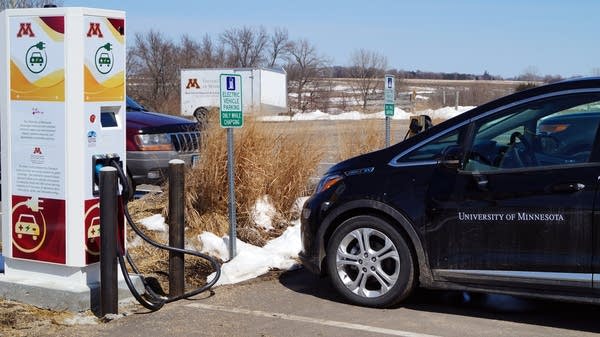State regulators push ahead with 'clean car' rules, despite GOP opposition

A new fast charger for electric vehicles sits ready at the University of Minnesota West Central Research and Outreach Center in Morris on in 2018.
Courtesy of Esther Jordan of WCROC 2018
Go Deeper.
Create an account or log in to save stories.
Like this?
Thanks for liking this story! We have added it to a list of your favorite stories.


